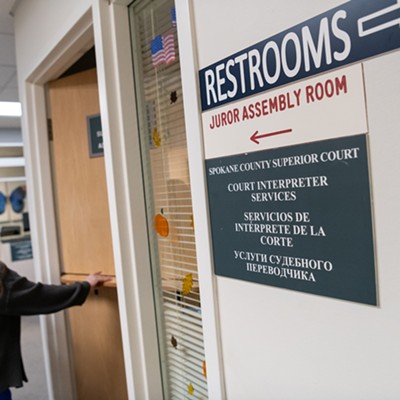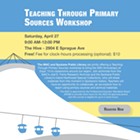At the height of the COVID pandemic, small businesses nationwide were stymied by shutdowns meant to slow the spread of the virus. In an effort to soften the effects of these shutdowns, the federal government approved relief funding to keep these businesses open.
But what seemed like a ray of hope to many looked to others like a once-in-a-lifetime chance to cash in.
Between the Paycheck Protection Program (an $800 billion program that provided businesses with funds for up to eight weeks of payroll costs) and the Economic Injury Disaster Loan program (that helped meet up to $2 million in business-related expenses), there were billions of dollars available nationally for business owners.
Many of these funds ran out quickly due to high demand — and fraud, according to Vanessa Waldref, U.S. attorney for the Eastern District of Washington.
"When we saw that money was running out, we knew we needed to do something about it," says Waldref, who became the region's chief federal law enforcement officer in October 2021.
This led Waldref and the U.S. Attorney's Office to form a task force supported by a group of federal agencies — including the Small Business Administration (SBA), the FBI and the Office of Inspector General — to track down this fraud. Similar task forces have formed across the country in an effort to find the billions in pandemic relief that were stolen or wrongfully obtained.
By launching the Eastern Washington strike force, Waldref's team has been able to more quickly charge people with defrauding these relief programs. Previously, such cases took much longer to prosecute, she says.
Since its inception in February 2022, the Eastern Washington COVID-19 Fraud Strike Force has indicted more than 20 people for fraudulently obtaining pandemic-era relief funds, including Arkansas resident Tyler Keith Andrews, who pleaded guilty late last month to a scheme that fraudulently obtained more than $16.5 million in pandemic-era relief in the Inland Northwest, the largest such case, so far, in the region.
While Waldref says an exact total for fraud in Eastern Washington is hard to know, the SBA estimates that more than $100 billion was taken across the country, making up around 10% of the funds that were approved by Congress. With about $27 billion in pandemic loans being disbursed throughout the Evergreen State, according to the U.S. Attorney's Office, some estimate that $1 billion in COVID fraud may have occurred in Washington state alone.
Assistant U.S. Attorney Dan Fruchter, who leads the Fraud and White Collar Crime Unit and works under Waldref, says the regional strike force has already recovered about $4 million in fraudulent funds with millions more that will come back through restitution. Whether that comes in wage garnishments or some form of repayment plan, Waldref and Fruchter say it is a major step in accepting responsibility for those who have been convicted.
"We should be able to trust the public to not defraud the government," Waldref says. "We're hoping that this sends a deterrent message to fraudsters in Eastern Washington."
'FRAUD FEE'
Andrews, the 37-year-old Arkansas resident, was charged with 11 felonies — one count of conspiracy to commit wire fraud, seven counts of wire fraud and three counts of aggravated identity theft.
His is the most significant fraud case investigated by the regional COVID fraud strike force. In a plea agreement that was approved by U.S. District Judge Thomas O. Rice, Andrews pleaded guilty to the count of wire fraud conspiracy while all other charges will be dismissed.
By signing the plea agreement, Andrews admitted to facilitating dozens of fraudulent loan applications for people in the Inland Northwest, with the help of co-defendant Yuriy Pavlovich Anishchenko, according to the indictment. As part of this scheme, Anishchenko would find more than a dozen new "clients" for Andrews to file fraudulent loan applications for, the indictment said.
Fruchter, who worked to prosecute Andrews' case, says Andrews was charging a "fraud fee" of around 10% to everyone he helped defraud the government.
"He was sort of this ringleader in the center of all these different cases of fraud," Fruchter says.
The rest of the fraud came from businesses that Andrews claimed to own in both Arkansas and Colorado, amounting to another $3.25 million in fraud, according to the indictment.
According to Andrews' plea agreement, he could face up to 20 years in prison and another three years on supervised release, however Waldref's office agreed to recommend a sentence at the low end of the sentencing guideline range.
He will also be required to pay restitution. While an amount and payment schedule will likely be set at sentencing, Andrews has agreed to pay not less than 10% of his net monthly income. His sentencing has been set for January 2024. (Anishchenko's case is still pending.)
Andrews' guilty plea may mark the largest case brought forward by the regional COVID fraud strike force, but his case is just a small tributary in the river of fraud flooding the nation.
"We should be able to trust the public to not defraud the government. We're hoping that this sends a deterrent message to fraudsters in Eastern Washington."
tweet this
PROSECUTION CONTINUES
Andrews may have taken the opportunity to create his own fraud-based business, but many of the cases that have been charged are more straightforward. Some received funds for their actual business but were accused of misspending the money for personal gain.
In August, Benjamin Castilla, owner of Columbia Basin Netwerks, a Kennewick-based IT services business, admitted that he used $107,534 of the federal funding to buy a recreational vehicle for his personal use. In a settlement, he's agreed to repay the cost of the RV and all of the CARES Act loan funding that he received. His company obtained about $73,000 in PPP funds, according to the ProPublica "Tracking PPP" database. The rest of his fraudulent funds came in the form of economic injury disaster loans.
In the case of West Richland resident Jimia Cain, her reported business, Americore Construction, didn't qualify. Between false statements and fictitious tax and payroll documentation, she was able to obtain more than $337,000 in fraudulent funds — $71,900 in economic injury disaster loans and $265,267 in PPP funds — between July and August 2020.
Realistically, Americore was not an active business during any relevant time periods, did not have any employees and should not have received any relief funding. In June 2023, Cain was sentenced to 15 months in prison and three years of federal supervision after her release. She will also be required to fully repay her ill-gotten loans.
A Spokane Valley couple, Raymond and Jennifer Hilderbrand, are the latest notch in the task force's belt. On Tuesday, the pair was indicted on eight fraud charges for obtaining $363,000 in economic injury disaster loans, which, according to the indictment, they converted to another of their businesses that was not eligible for those funds.
With billions of dollars of fraudulently obtained relief funds still unaccounted for, many of the cases charged by the regional COVID strike force can seem insignificant compared to others. Some cases have dealt with fraud amounts as low as $50,000 — or about 0.005% of the estimated $1 billion stolen in Washington.
However, Fruchter says that prosecuting these cases is just as important as any other case.
In 2022, Congress voted to extend the statute of limitations on fraud related to PPP and EIDL from five years to 10. Fruchter, who started prosecuting such cases during the 2008 mortgage fraud crisis, says he expects the strike force to operate for at least another few years.
His experience tells him that other crises will come up before the ten-year deadline to prosecute pandemic-era fraud. But, really, only time will tell. ♦
























